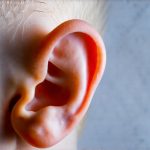Motion sickness, a frustrating experience for many, has traditionally been attributed to a mismatch between visual input and signals from the inner ear – our vestibular system. However, emerging research is increasingly highlighting a surprising and complex connection: the gut microbiome. For years, scientists focused almost exclusively on the brain and inner ear as the primary players in motion sickness, overlooking the significant role played by this vast community of microorganisms residing within our digestive tract. The gut isn’t merely responsible for digestion; it’s an intricate ecosystem that profoundly influences numerous physiological processes, including neurological function, immune regulation, and even mood – all factors potentially linked to how we experience and cope with motion.
This connection stems from what is known as the gut-brain axis, a bidirectional communication network linking the gastrointestinal tract and the brain. Signals travel along this axis in both directions, meaning gut health can impact neurological processes, and vice versa. Disruptions in the gut microbiome – called dysbiosis – have been implicated in a wide range of conditions beyond digestive issues, including anxiety, depression, and now, potentially, an increased susceptibility to motion sickness or exacerbation of vestibular disorder symptoms. Understanding this interplay opens up exciting possibilities for novel preventative and therapeutic approaches that go beyond traditional remedies like antihistamines or ginger. It suggests that cultivating a healthier gut microbiome could offer a proactive strategy for managing these conditions.
The Gut-Brain Axis And Vestibular Function
The gut-brain axis isn’t a single pathway, but rather a complex network involving several interconnected routes. Primarily, it utilizes the vagus nerve – a cranial nerve extending from the brainstem to the abdomen – as a direct communication line. Microbial metabolites produced by bacteria in the gut can also influence brain function through indirect means like modulating the immune system and impacting neurotransmitter production. Specifically relating this to vestibular disorders and motion sickness, consider how these processes could impact balance and spatial orientation:
- Vagal nerve stimulation: A healthy microbiome promotes balanced vagal tone, contributing to better autonomic nervous system regulation—crucial for maintaining equilibrium.
- Inflammation modulation: Gut dysbiosis can trigger systemic inflammation, which has been shown to affect vestibular function and exacerbate symptoms of vertigo or dizziness.
- Neurotransmitter synthesis: Many neurotransmitters essential for balance and spatial awareness (like serotonin) are partially produced in the gut and influenced by microbial activity. A disturbed microbiome can lead to imbalances that impact these processes.
The brain relies on a constant stream of information from various sources – vision, proprioception (body position sense), and the vestibular system – to create a coherent perception of space and movement. When there’s a conflict between these signals, as occurs in motion sickness, the brain struggles to reconcile them, leading to symptoms like nausea, vomiting, and dizziness. A compromised gut-brain axis can amplify this sensory mismatch. For example, inflammation triggered by gut biofilm could sensitize the vestibular system, making individuals more prone to experiencing exaggerated responses to movement.
Furthermore, research suggests that the microbiome influences the blood-brain barrier – a protective layer regulating what enters the brain. A leaky blood-brain barrier allows inflammatory molecules and toxins to enter the brain, potentially disrupting neurological function and contributing to symptoms of vestibular disorders or motion sickness. Therefore, maintaining gut health can contribute to a stronger, more resilient blood-brain barrier. Physical inactivity has also been shown to increase episodes of nausea and indigestion which can contribute to these issues.
Vestibular Disorders And Microbiome Composition
While research is still evolving, specific patterns are emerging regarding microbiome composition in individuals with vestibular disorders. It’s important to note that these aren’t universal findings – individual microbiomes vary greatly based on diet, genetics, and lifestyle – but they offer intriguing clues about potential links:
Studies have observed differences in the diversity and abundance of certain bacterial groups between people experiencing chronic dizziness or balance issues compared to healthy controls. Specifically, some research points towards a reduction in beneficial bacteria like Lactobacillus and Bifidobacterium, known for their anti-inflammatory properties and role in gut barrier integrity. Simultaneously, there’s often an increase in potentially pro-inflammatory bacterial species. This imbalance can exacerbate the inflammatory processes that contribute to vestibular dysfunction.
Another key observation is the potential for altered production of short-chain fatty acids (SCFAs) – metabolites produced by bacteria during fiber fermentation – in individuals with vestibular disorders. SCFAs like butyrate, propionate, and acetate have numerous beneficial effects, including reducing inflammation, strengthening the gut barrier, and even influencing brain function. A microbiome lacking sufficient SCFA-producing bacteria may compromise these protective mechanisms, increasing vulnerability to symptoms.
Importantly, it’s not simply about identifying specific “bad” bacteria; it’s about the overall balance of the microbial ecosystem. Even seemingly harmless bacteria can contribute to problems if they proliferate excessively in the absence of beneficial species. This highlights the importance of a holistic approach to gut health that focuses on fostering diversity and promoting a thriving microbiome. Gut health is increasingly recognized as playing a role in overall wellbeing.
Dietary Interventions & Motion Sickness
Diet plays a pivotal role in shaping the composition of our gut microbiome. A diet rich in processed foods, sugar, and saturated fats can promote dysbiosis, while one emphasizing whole, unprocessed foods – particularly those high in fiber – supports a diverse and healthy microbial community. For individuals prone to motion sickness or experiencing vestibular symptoms, specific dietary modifications may offer benefits:
- Increase Fiber Intake: Fiber feeds beneficial bacteria in the gut, promoting SCFA production and improving gut barrier function. Excellent sources include fruits, vegetables, legumes, and whole grains.
- Limit Sugar & Processed Foods: These can fuel the growth of harmful bacteria and contribute to inflammation.
- Consider Fermented Foods: Yogurt, kefir, sauerkraut, kimchi, and kombucha contain live probiotics – beneficial bacteria that can help restore balance to the gut microbiome. However, it is important to note that probiotic supplements aren’t always effective for everyone, as individual responses vary.
Beyond general dietary recommendations, some preliminary research suggests specific foods or nutrients might play a role in mitigating motion sickness symptoms. Ginger, traditionally used for nausea relief, may also exert its effects by influencing the gut microbiome. Similarly, certain prebiotics – non-digestible fibers that selectively promote the growth of beneficial bacteria – could potentially enhance gut health and reduce susceptibility to motion sickness. These are areas requiring further investigation, but they highlight the potential for targeted dietary interventions.
Probiotic Supplementation: A Cautious Approach
Probiotic supplements have gained immense popularity as a way to improve gut health, but their use in relation to motion sickness or vestibular disorders requires caution. While probiotics can be beneficial for some individuals, it’s crucial to understand that they aren’t a one-size-fits-all solution. The effectiveness of a probiotic supplement depends on numerous factors, including the specific strains included, the dosage, and individual gut microbiome composition.
- Strain Specificity: Different probiotic strains have different effects. A strain effective for diarrhea may not be helpful for motion sickness.
- Individual Variability: Everyone’s microbiome is unique. What works for one person might not work for another.
- Temporary Effects: Probiotics often don’t permanently colonize the gut, meaning their benefits may be transient unless consistently supplemented.
Before starting a probiotic supplement, it’s advisable to consult with a healthcare professional to determine if it’s appropriate and which strains might be most beneficial based on individual needs. Furthermore, focusing solely on probiotics without addressing underlying dietary or lifestyle factors is unlikely to yield lasting results. A holistic approach that prioritizes a gut-friendly diet and lifestyle is far more effective in the long run. IBS can also influence microbiome composition.
Future Research & Implications
The connection between gut flora and motion sickness/vestibular disorders is still a relatively new area of research, but it’s rapidly gaining momentum. Future studies are needed to:
- Identify specific microbial signatures associated with susceptibility to motion sickness or different vestibular disorder subtypes. This could lead to personalized interventions tailored to individual microbiome profiles.
- Investigate the mechanisms by which gut dysbiosis influences vestibular function and symptom severity. Understanding these pathways will inform the development of targeted therapies.
- Evaluate the efficacy of various dietary and probiotic interventions for preventing or alleviating motion sickness/vestibular symptoms in controlled clinical trials.
The implications of this research are far-reaching. It suggests that managing gut health could become an integral part of preventative strategies for motion sickness, particularly for individuals who frequently travel or experience sensitivity to movement. For those suffering from chronic vestibular disorders, restoring a healthy microbiome may offer a novel adjunct therapy to conventional treatments, potentially improving symptom management and quality of life. Overtraining can also disrupt gut health. Ultimately, recognizing the profound influence of the gut-brain axis on balance and spatial orientation opens up exciting new avenues for understanding and addressing these often debilitating conditions. Physical inactivity may also play a role in gut health.


















